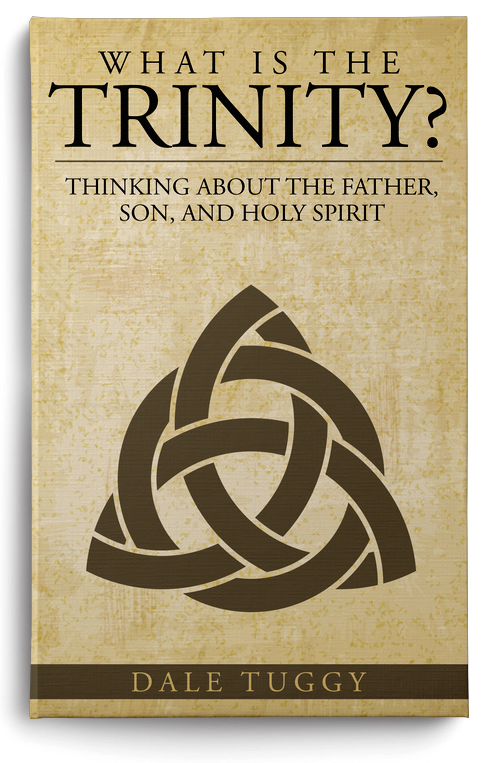Podcast: Play in new window | Download
Subscribe: Spotify | Email | RSS

There are now a plethora would-be experts on “the doctrine of the Trinity” who offer to tell you the basics of what you need to know about the subject in a short paperback book, or in a lecture or three. Here are some questions which any actual expert should have ready and supportable answers for.
10 Basic or Fundamental Questions about “the Trinity”:
- What is “the doctrine of the Trinity”?
- Why is this doctrine not, as some allege, tritheism?
- Why is this doctrine not, as some allege, incoherent?
- Is this doctrine consistent with the common conception of God as a mighty, unique, and completely perfect self?
- When, if ever, did God reveal this doctrine?
- If this doctrine is “in” the Bible, how can one see this?
- If this doctrine is not in the Bible, why should Bible-oriented Protestants accept it?
- How does this doctrine relate to the so-called “ecumenical” councils?
- Why have some Christians opposed any Trinity doctrine?
- Is this doctrine, as the “Athanasian” creed asserts, something which one must believe in order to be saved?
I also suggest ten more advanced questions. If a source can give convincing answers to any of these harder questions, then it should get some bonus points, especially if it can also answer the ten more basic ones above.
10 Advanced Questions about “the Trinity”: bonus points for answering
- Hypothetically, what would be required to show that the doctrine of the Trinity is false?
- Does “the Trinity” either require or exclude a traditional doctrine of “divine processions”?
- Is this doctrine “a mystery” and if so, what does that mean?
- Is “the doctrine of the Trinity” consistent with divine simplicity?
- What, if any, are the Jewish and/or Christian precursors to this doctrine of the Trinity? What are the stages by which this line of thinking about God developed?
- What are the various competing ways of understanding the traditional Trinity-language, i.e. Trinity theories?
- How can we rule out competing Trinity theories?
- Why isn’t the prevalence of such disagreement among people who have a Trinity theory evidence that no such theory has been revealed by God?
- If “the Trinity” is a salvation-required doctrine why is it not clearly spelled out in any biblical passage?
- In what sense, if any, is “the Trinity” an essential doctrine? Essential to what exactly? In other words, we can’t truly have ____ until we have a doctrine of the Trinity.
At the end of this episode, I’ll very briefly tell you my answers; I’ve been researching and publishing on these things for more than two decades. But you can skip that ending part if you want, because my main point here is just to arm you with important questions as you start to find your way around this topic.
Links for this episode:

podcast 302 – The Stages of Trinitarian Commitment
2 Timothy 2:24-25
podcast 190 – What is the Trinity? A triad of book reviews
The Standard Opening Move [of trinitarian apologists]
podcast 102 – Dr. Brian Leftow on perfect being theology
podcast 164 – On Counting Gods
podcast 260 – How to Argue that the Bible is Trinitarian
Westminster Confession of Faith
podcast 31 – Dr. William Hasker on the “Arian” Controversypodcast
podcast 30 – The Council of Nicea
10 steps towards getting less confused about the Trinity – #6 get a date – part 2
podcast 248 – How Trinity theories conflict with the Bible
How Trinity theories conflict with the New Testament
podcast 2 – the “Athanasian Creed”
podcast 286 – Is the Trinity Essential? – Three Views
“Trinity,” Stanford Encyclopedia of Philosophy
Evolution of the Trinity – with Bill Schlegel on The One God Report
This week’s thinking music is “The Dweller on Coyote Hill” by Little Glass Men


Something you said stuck with me. To believe in the Trinity is not necessary for salvation. To believe in the Unitarian view neither then. As you said, there are obviously saved trinitarian christians. So what is required then? Just the conviction that there is a God, without adding our thoughts on who he is? I don’t know.
I am struggling with atonement theories. What struck me was the thought that the situation is very similar. There is atonement and it’s by Jesus Christ. That’s a fact, testified over and over in the Bible, and should be believed. Exactly how that atonement works is someone’s theory. There’s many theories to choose from and have their shortcomings and often real problems. I cannot find a theory of atonement in the Bible. Maybe I haven’t looked hard enough. Maybe it’s right in front of me, but somehow I am not seeing it. Like a trinitarian can read that the one God is the Father, and just not get it.
Often when there’s a gospel presentation or invitation, they present an atonement theory (mostly penal substitution). And this is just not how the Bible writers talked. They stated the fact that there is atonement, without explanation of how it works. So maybe our atonement theories are not necessary for salvation either. That’s the thought that came to me during your podcast.
Comments are closed.